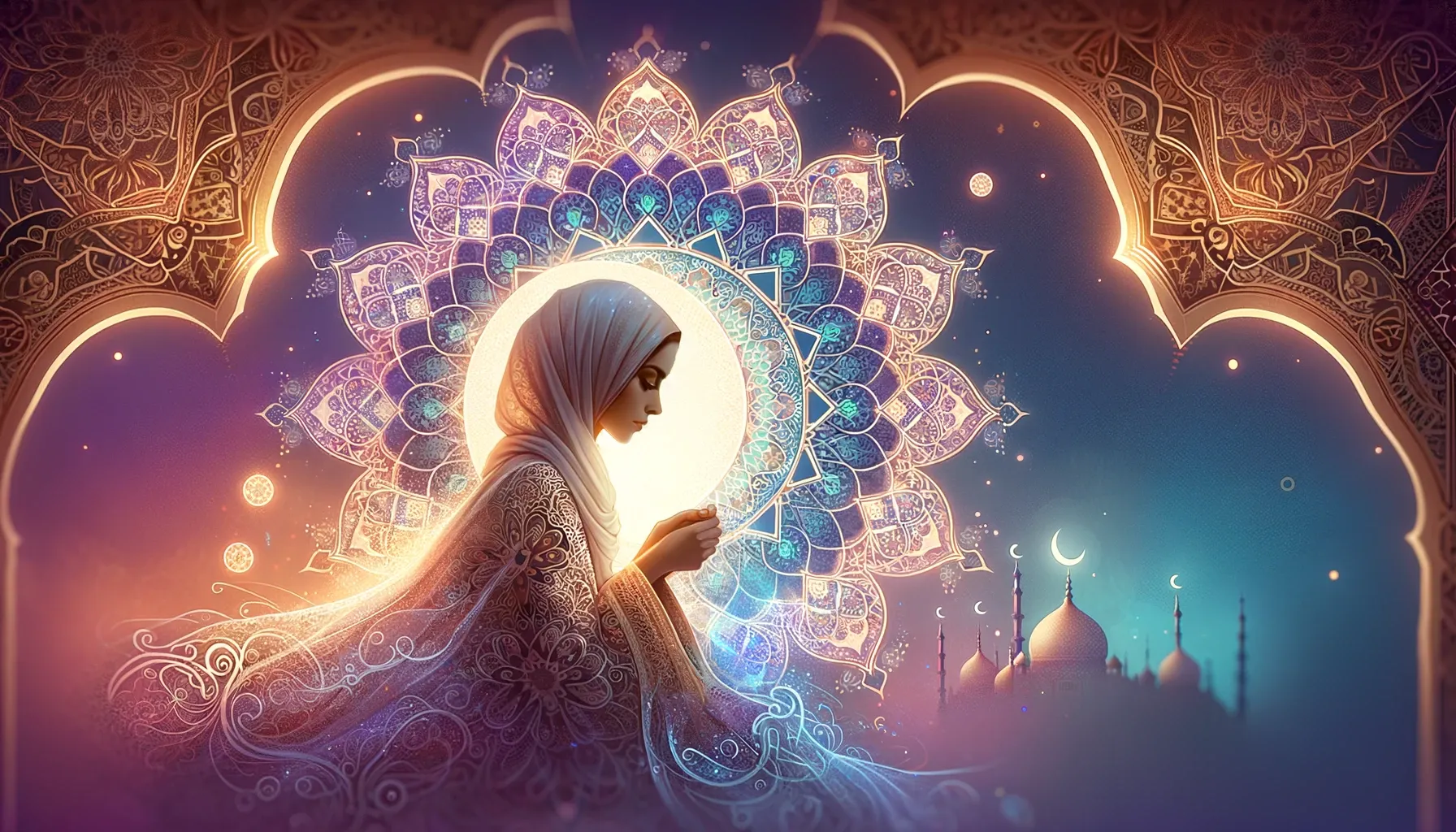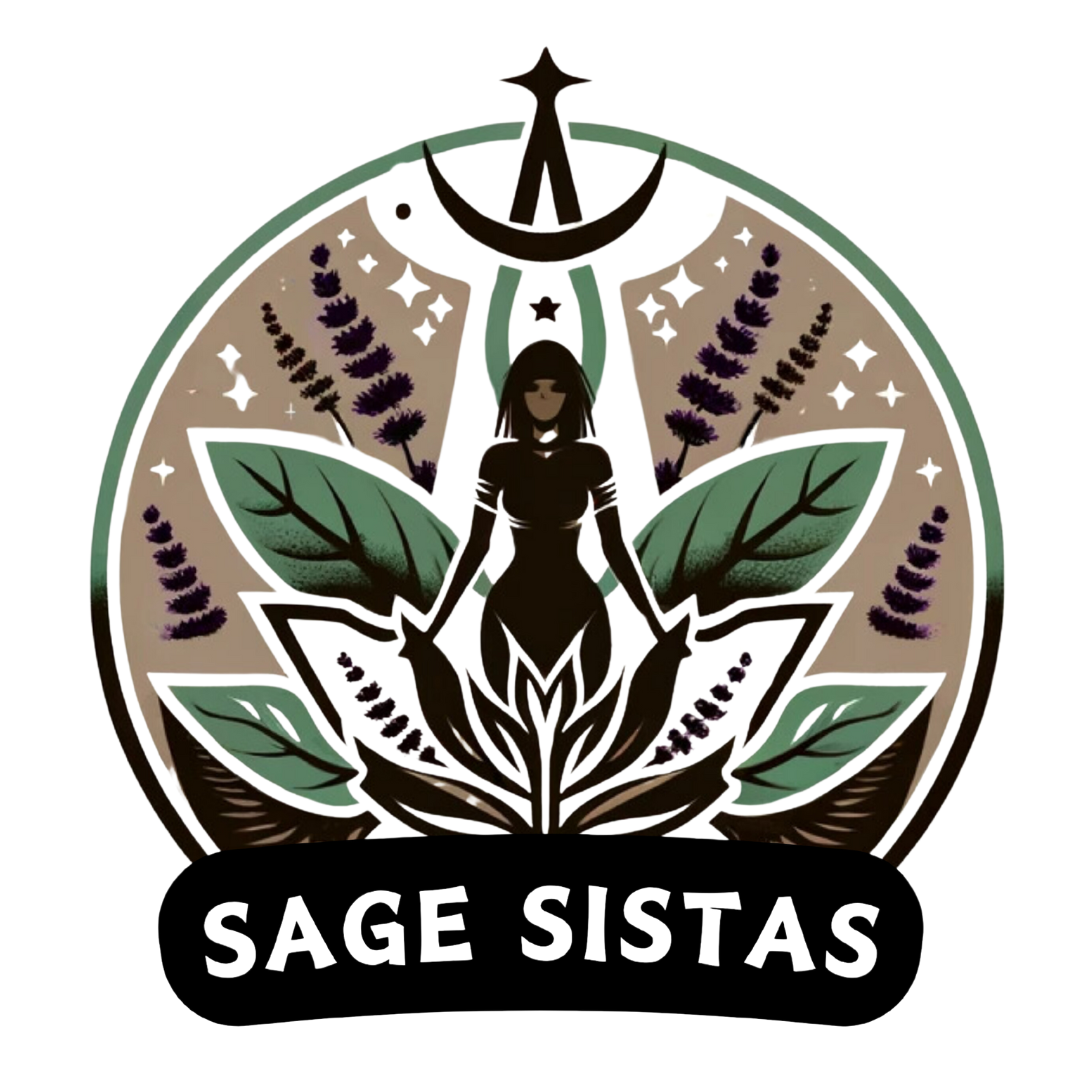The Transformative Power of Ramadan's Fast: Heal Your Body and Soul

As the crescent moon heralds the arrival of Ramadan, I find in contemplation, reflecting on my journey with this deeply spiritual practice. My experiences with Ramadan have been varied; from observing from the sidelines during my years of pregnancy and breastfeeding (including this year) to wholeheartedly diving into the fast two years ago—a year that profoundly transformed my understanding and appreciation of this holy month. That year of fasting was a pivotal chapter in my life, one that debunked my earlier misconceptions and unveiled the rich tapestry of benefits and insights that Ramadan generously offers.
Ramadan, I’ve learned, is not just a period of physical abstention but a gateway to spiritual renewal and deeper connection. It's an experience I long to revisit, to immerse myself in its purifying embrace, year after year, as long as I'm able. Today, I wish to share with you not only my personal revelations from that transformative period but also to extend an invitation to view Ramadan through a lens of discovery, understanding, and communal empathy.
Introduction to Ramadan:

Ramadan, the ninth month of the Islamic lunar calendar, holds a profound place in the hearts of Muslims around the world. It is a time when the faithful embark on a month-long journey of fasting (from dusk till dawn), prayer, and introspection, seeking to purify their souls and draw closer to Allah. The essence of Ramadan is beautifully encapsulated in the Quran, where Allah says,
"O you who have believed, decreed upon you is fasting as it was decreed upon those before you that you may become righteous" (Quran 2:183).
This verse underscores fasting as a means to attain taqwa, or God-consciousness, reminding us that the practice of fasting is not merely an act of physical abstention but a spiritual discipline designed to elevate the human condition.
The significance of Ramadan extends beyond personal growth; it is a time of communal unity and a reminder of the virtues of empathy and generosity. The Quran further illuminates the purpose of Ramadan in Surah Al-Baqarah:
"The month of Ramadan [is that] in which was revealed the Quran, a guidance for the people and clear proofs of guidance and criterion..." (Quran 2:185).
Thus, Ramadan is also a celebration of the Quran's revelation, offering an opportunity for Muslims to engage deeply with the holy text, seeking guidance, mercy, and forgiveness.
My Initial Skepticism:
My journey into the heart of Ramadan began with skepticism and a fair share of cultural shock. Having arrived in Egypt, the vibrancy and zeal with which Egyptians approached Ramadan bewildered me. The stark contrast between the daytime fast and the nightly feasts, complete with lavish spreads and the communal joy of breaking the fast, seemed paradoxical. My preconceived notions about fasting were challenged head-on; I couldn't fathom how abstaining from food and water during the day, only to indulge at night, could be spiritually uplifting or physically beneficial.
This skepticism was rooted in my limited understanding of fasting and the broader spiritual context of Ramadan. The cultural shock of experiencing Ramadan in Egypt was profound. The entire rhythm of daily life changed; the nights came alive with prayers and social gatherings, while the days were marked by a serene quietude. It was a stark departure from anything I had experienced before, leaving me puzzled yet curiously intrigued about the deeper essence of this sacred month.
As I embarked on this journey of understanding and participation, my initial skepticism slowly transformed into a profound respect and appreciation for the spiritual discipline and communal harmony that Ramadan fosters. What began as a bewildering cultural phenomenon gradually unveiled itself as a transformative spiritual practice, deeply rooted in compassion, self-discipline, and a shared sense of humanity.
The Year I Fasted: A Journey of Transformation

Decision to Fast and Expectations:
Two years ago, amidst a sea of changes and seeking a deeper connection with myself and my faith, I embarked on my first true Ramadan fast. My expectations were a mix of anxiety and hope; I was curious to see if the transformative experiences shared by others would mirror my own. Despite my skepticism about the benefits of fasting and the traditional Egyptian Ramadan setup, my journey was about to take a profound turn.
Challenges and Surprises Along the Way:
The fast was surprisingly easier than anticipated, revealing the power of environment and community in shaping our experiences. Living here now, the seduction of everyday indulgences seemed to fade, making it astonishingly simple to give up coffee, cigarettes, and daytime meals. Discovering the importance of nutritious suhoor with fava beans (ful) was a game-changer, fueling my days and teaching me the critical balance of good nutrition during non-fasting hours.
Admittedly, I wasn't dogmatic about my fast—I allowed myself water during the day and didn't fast on weekends to be with my children. My approach was personal, tailored to my journey towards self-improvement rather than strict adherence. This flexibility led to a deeper understanding and appreciation for Ramadan's collective spirit.
Transformative Lessons Learned:
The fast stripped away all pretense, compelling me to confront my inner demons directly—those same demons often referenced in the Quran as being restrained during Ramadan. This confrontation wasn't just with myself but extended to my husband, demanding transparency and honesty in ways we hadn't experienced before. There was no space for inauthenticity; it was a time for raw, unfiltered truth.
Learning to embrace hunger was a revelation. Previously, I believed that skipping a meal could be my undoing, yet here I was, finding strength in my fasting. This discipline taught me resilience, a detachment from the superficial needs dictated by a capitalist society, and brought me closer to understanding the true essence of contentment.
This Ramadan journey fostered a profound empathy within me, especially for those enduring hunger and poverty. It was a reminder of the broader struggles outside my personal bubble, urging a deeper compassion and solidarity with those in need. (Sending my heartfelt wishes and prayers to those in greatest need 🍉)
This transformative period was not just about personal growth or changing lifestyle habits; it reshaped my marriage and family dynamics, drawing us closer in a shared spiritual awakening. The support from my husband and our community was a testament to the power of collective empathy, reinforcing the sacredness of this time.
Impact on Personal Habits and Lifestyle:
The immediate benefits were tangible—weight loss, clearer skin, improved digestion, and an ease in meditation and yoga practices. However, the deeper impact was on my habits and lifestyle. Gaining control over my dependencies on coffee and nicotine was empowering. The structured disruption of Ramadan forced a reevaluation of daily routines, making the nights packed with chores and family time, yet bringing us closer together.
As I reflect on this journey, the lessons of Ramadan continue to resonate deeply. It's a testament to the power of faith, self-discipline, and community. My experience has not only debunked my initial skepticism but has also opened my eyes to the profound wisdom embedded in this holy month. I look forward to embracing this sacred time each year, for as long as I am able.
Physical Advantages of Ramadan: A Deep Dive into Autophagy and Beyond

Ramadan offers a unique opportunity to explore the intersection of spiritual practice and physical health. Among its many benefits, the process of autophagy stands out, providing a fascinating glimpse into the body's ability to rejuvenate itself. This chapter seeks to unravel the myriad ways in which Ramadan fasting can enhance our physical well-being, focusing on autophagy, improved metabolic function, and the overall impact on health without reiterating previously mentioned points.

Autophagy: The Self-Cleansing Mechanism
The phenomenon of autophagy, where cells digest and recycle their own components, gains momentum during fasting. Ramadan acts as a catalyst for this process, as the body shifts its focus from digestion to rejuvenation and repair. This self-cleansing mechanism is critical for removing dysfunctional proteins and organelles, potentially lowering the risk of various diseases and promoting longevity.
Metabolic Reset and Enhanced Function
Fasting during Ramadan induces a metabolic reset, streamlining the body's energy usage and enhancing its metabolic processes. This period of dietary restraint fine-tunes the body’s response to insulin, making cells more responsive and efficient in their uptake of glucose. This metabolic shift not only supports weight management but also fosters a balanced energy distribution throughout the body.
Nutritional Insights and Mindful Eating
Ramadan brings to light the importance of nutritional mindfulness and strategic meal planning. The discipline fostered during this month encourages a thoughtful approach to meal composition, prioritizing nutrient-dense foods that sustain energy levels and support cellular repair. This intentional focus on nutrition can lead to lasting habits that benefit one's health year-round.
The Broad Spectrum of Health Benefits
The physical benefits of Ramadan extend into various aspects of health, including cardiovascular well-being, systemic inflammation reduction, and overall body composition. The fasting practiced during this month prompts a holistic detoxification, clearing the way for improved organ function and reduced disease risk. Additionally, the emphasis on hydration and strategic nutrition during non-fasting hours plays a crucial role in optimizing the body’s healing mechanisms.
A Journey to Holistic Health
Ramadan offers a unique blend of spiritual fulfillment and physical health benefits. The practice of fasting, particularly its role in promoting autophagy and metabolic efficiency, highlights the body's remarkable capacity for self-repair and maintenance. By engaging in this annual observance, individuals embark on a transformative journey that not only enhances their physical well-being but also deepens their connection to their spiritual and emotional selves. The lessons learned during Ramadan have the potential to inspire a year-round commitment to health, mindfulness, and personal growth.
Spiritual Benefits of Ramadan: A Journey Through Ascetic Practices

Ascetic practices have been a cornerstone in many spiritual traditions, aimed at purifying the soul and attaining a closer communion with the divine. In Islam, Ramadan embodies this ascetic tradition through fasting, prayer, and reflection, serving not just as a physical discipline but as a profound spiritual journey. This holy month offers Muslims around the world an opportunity to deepen their faith, cleanse their souls, and renew their commitment to Allah. Here, we delve into the myriad spiritual benefits of Ramadan, as outlined by the Quran, showcasing its role in enhancing a believer's spiritual well-being.
- Cultivating Piety (Taqwa): Central to Ramadan is the cultivation of taqwa, or God-consciousness. The Quran underscores fasting as a means to foster a deep-seated awareness of Allah's omnipresence, guiding believers towards a life aligned with divine will (Quran 2:183). This heightened sense of piety encourages Muslims to live in a state of constant mindfulness of Allah's commands and presence.
- Opportunity for Forgiveness: Ramadan is a period marked by Allah's boundless mercy and forgiveness. The Quran inspires believers to seek forgiveness for their past transgressions, promising that sincere repentance will be graciously accepted (Quran 2:187). It's a time for spiritual renewal, allowing Muslims to start afresh, absolved of prior sins.
- Strengthening Patience: The act of fasting itself is a rigorous exercise in patience, teaching Muslims to endure hunger and thirst with grace. The Quran lauds the virtues of patience, promising blessings and guidance for those who persevere (Quran 2:153). This endurance transcends physical discomfort, fostering spiritual resilience and steadfastness.
- Reflection and Prayer: Enhanced prayer, recitation of the Quran, and introspection are hallmarks of Ramadan. The Quran highlights the significance of the Night of Qadr, exhorting believers to engage in prayer and Quranic reflection during this blessed night, deemed better than a thousand months (Quran 97:1-5).
- Empathy and Compassion: Experiencing the pangs of hunger cultivates deep empathy for the less fortunate. The Quran urges Muslims to act charitably and alleviate the suffering of those in need, particularly during this sacred month (Quran 2:177). This empathetic bond reinforces the communal spirit of Islam, reminding believers of their duty to assist the impoverished and distressed.
- Gratitude: Ramadan instills a profound sense of gratitude in Muslims for the everyday blessings they often overlook. The Quran emphasizes the importance of thanking Allah for His innumerable gifts, fostering an attitude of gratitude that enriches the believer's life (Quran 14:7).
- Spiritual Purification: This holy month serves as a time for spiritual cleansing, enabling Muslims to purify their hearts and souls. The Quran discusses fasting as a pathway to spiritual purity, drawing believers closer to Allah through acts of worship and devotion (Quran 2:222).
- Unity among Muslims: The collective experience of fasting during Ramadan fosters a strong sense of unity and brotherhood among Muslims worldwide. The Quran portrays the Muslim community as a unified body, emphasizing the importance of mutual support and solidarity (Quran 49:10).
- Renewing Intentions and Commitments: Ramadan offers a moment to reflect on one's intentions and reaffirm their dedication to following Allah's guidance. The Quran stresses the value of sincerity in both belief and action, encouraging Muslims to purify their intentions and live a life of devoutness (Quran 98:5).
- Increased Reward and Blessings: The Quran and Hadith highlight the enhanced rewards for good deeds performed during Ramadan. Believers are encouraged to amplify their acts of worship and charity, reassured by the promise of abundant blessings from Allah (Quran 33:35).
In essence, Ramadan is a spiritually enriching period that transcends mere abstinence from food and drink. It embodies the ascetic spirit of drawing nearer to the divine, purifying the soul, and reinforcing the bonds of community and compassion. Through fasting, prayer, and reflection, Muslims embark on a transformative journey that rejuvenates their faith and molds their character in alignment with divine virtues.
Navigating Ramadan When You're Not Fasting: A Guide

Ramadan, the holy month of fasting, reflection, and community for Muslims around the globe, holds a special place in the hearts of believers. It's a time when the faithful fast from dawn to sunset, abstaining from food, drink, and other physical needs to purify the soul and practice self-discipline. However, for those of us who are not fasting—due to pregnancy, breastfeeding, health reasons, or because we're not Muslim—navigating Ramadan can present a unique set of challenges, especially in a predominantly Muslim country or community.
During Ramadan, the atmosphere is charged with a mix of devout observance and communal joy. Yet, for non-fasters, this period can sometimes feel isolating or out of sync with the surrounding fervor. The days can be long, especially in the sweltering heat, where the absence of food and drink sharpens every moment. As the community turns inward, focusing on spiritual growth and restraint, those of us on the periphery must find our own ways to connect and navigate the month with respect and understanding.
Here are some tips on how best to navigate Ramadan when you're not fasting:
- Respect the Fast: Even if you're not fasting, it's important to show respect for those who are. Avoid eating, drinking, or smoking in public during daylight hours out of consideration for those observing the fast.
- Engage with the Community: Ramadan is not just about fasting; it's also a time for charity, prayer, and community. Participate in iftar gatherings, volunteer for charitable activities, and engage in interfaith dialogues to better understand and connect with the spirit of Ramadan.
- Be Mindful of Cultural Sensitivities: Understand that tempers may be shorter during the day due to hunger and thirst. Approach interactions with patience and empathy, recognizing that the fasting experience can intensify emotions.
- Explore Spiritual Practices: Use this time to explore your own spiritual or reflective practices. Whether it's meditation, reading, or simply spending time in nature, find ways to connect with a sense of peace and reflection that resonates with you.
- Learn and Educate: Take the opportunity to learn more about Ramadan, its significance, and the diverse ways it's observed around the world. Share your learning with others to foster a greater understanding and appreciation of this sacred month.
- Support Fasting Friends and Family: Show support for your fasting friends and family by offering to help with pre-dawn or evening meals, being considerate of their schedule, and encouraging them in their fast.
- Stay Hydrated and Nourished: If you're not fasting for health reasons, ensure you stay hydrated and nourished, particularly if you're participating in community events or experiencing the heat of the day.
- Focus on Personal Growth: Use this time to reflect on your own life, goals, and areas for personal growth. Ramadan is a time of renewal for many; let it also be a time for you to set intentions and work towards positive change in your life.
Conclusion
Navigating Ramadan when you're not fasting can be a deeply enriching experience, offering opportunities for learning, connection, and personal growth. By approaching the month with respect, openness, and a spirit of curiosity, you can find meaningful ways to participate in the communal and spiritual essence of Ramadan.
Diving into Ramadan has marked a significant turning point in my journey, reshaping my path and playing a vital role in nurturing my marriage. This sacred period transcends mere tradition; it’s an opportunity for profound personal and spiritual growth that’s open to everyone, regardless of their background.
My experience with Ramadan, including the years I had to adapt my participation due to motherhood responsibilities, has deepened my connection and appreciation for this time. It’s taught me that the essence of Ramadan goes beyond fasting. It’s about discovering our deeper selves, fostering empathy, and building stronger community ties.
I encourage everyone, whether you're Muslim or not, to discover the transformative power of Ramadan. Whether it’s through fasting, offering support, or engaging in contemplation, this month offers a profound experience that can profoundly impact our lives and relationships. Let's embrace Ramadan as a yearly journey of self-discovery and community, one that has the power to beautifully transform our paths and relationships.


